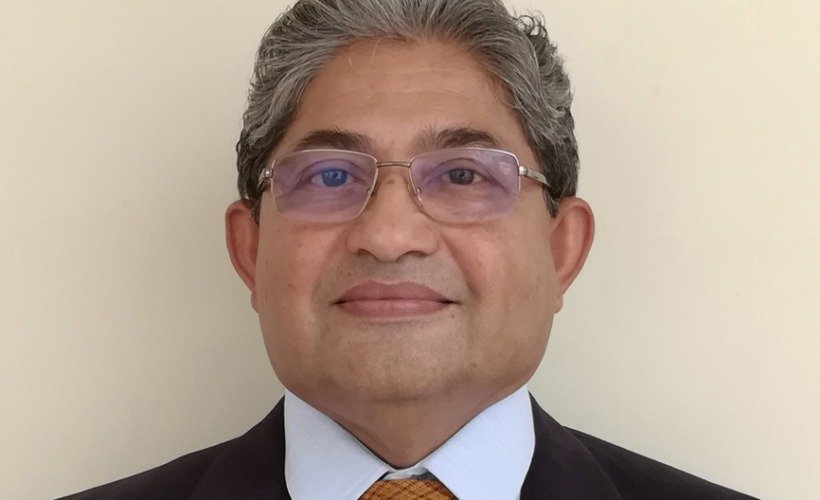
The author critically examines the International Commercial Arbitration that he has been pursuing in this 2021 calendar year. He dwells on the conflict of laws among companies belonging to different countries, questions their basic motive to agree for arbitration and finally, his concern is about the ethical practices of the arbitrators themselves
Continuous improvement is better than delayed perfection’, said Mark Twain, the well-known American writer who was also an entrepreneur of repute.
At the fag-end of the year 2021, we would profit if we would review critically the Alternative Dispute Resolution that we have been pursuing as International Commercial Arbitration by several agencies. There are three essential points that stick out as the unaddressed critical points in the system. First, the companies being international, there is always a clash of laws among different countries of commercial engagement. Second, there is a very big question mark concerning the motive behind the companies to resort to arbitration. Third, irrespective of the claims by arbitration agencies about the competence and moral soundness, the companies have expressed and litigated about the ethical standards of the arbitrators.
The conflict of laws in international commercial arbitration
We have discussed the United Nations Commission on International Trade Law (UNCITRAL). Here is a sample where a judgment under its Model and Rules has created total chaos and confusion against the Indian ADR laws and regulations. The contentious case is as follows: Bhatia International versus Bulk Trading S. A. & Others, decided on 13 March 2002, (popularly known as Bhatia Case). The Supreme Court held that the Arbitration and Conciliation Act, 1996 has interim as well as curative jurisdiction over the interim relief and remedy over foreign seated award. How to find legal remedy internationally if the arbitration relief and award are uncertain? Further, its outcome will be of impossibility to settle any dispute in such jurisdictional bewilderment and perplexity. However, to their defence, the courts have demonstrated that if the parties to the arbitration agreement expressly decide the seat of arbitration, then the Indian courts would not interfere. Problems continued to pester with express and presumed situations.
Critique: The laws of a country are valid only within their jurisdiction, which in so far as its exercise is concerned is confined to its dominion; beyond its border only in so far as the concerned countries or a block of such countries mutually agree to apply certain rules and regulations with agreements, pacts, treaties and the like. The UNCITRAL Model Laws and Rules are agreed on by the members of the United Nations. However, many countries have either not made or amended their laws accordingly. The Bhatia case exhibited this glaring anomaly as it clashed with the Arbitration and Conciliation Act, 1996. This damaged the reputation of India as one of the legally advanced countries of the world. For the courts of countries around the world routinely cite the rulings of Indian courts. The Supreme Court of India later took serious cognisance of it in Bharat Aluminium Co. versus Kaiser Aluminium Technical, decided on 6 September, 2012 (popularly known as BALCO Case).The Apex Court held that the Arbitration and Conciliation Act 1996 does not clash with the UNCITRAL Model Law concerning interim as well as curative jurisdiction over the interim relief and remedy over foreign seated award. But the damage was done.
Suspect Motives
Singapore International Arbitration Centre (SIAC) is one of the top most popular destinations for commercial dispute resolution. There came across this case: The dispute arose concerning the arbitral award between two companies, CDM and CDP partnered for offshore oil rig who had arbitral contract with SIAC. The appellant (CDM) and the defendant (CDP). The appellant approached the High Court and finally the Supreme Court of Singapore. To begin with the appellant had pleaded that the arbitral award by SIAC was unfair and partial one. Hence the suit under Article 34(2) of the UNCITRAL Model Law. The appellant challenged the arbitral award in the High Court with the plea that the Arbitral Tribunal had overshot its jurisdiction. But the challenge was dismissed. It was challenged in the Apex Court praying that the company suffered a miscarriage of natural justice. Having diligently applied its mind, the Court held: a) the appellant failed to establish that the Tribunal had acted in excess to its jurisdiction; b) there came nothing in the way of in breach of natural justice. The Court dismissed the appeal and dealt with order for costs.
Critique: The experts hailed the judgement. The media opined the ‘Trojan Horse’ strategy by the appellant company whose intention was to hide behind the UNCITRAL Article 34 for its own gain was exposed. Further, it has been found that many companies use the arbitration route to either chance their luck or to gain time to litigate in the future. The arbitration proceedings and rulings are under the cover of confidentiality. A company with ill motives would prefer to hide behind the smoke-screen of secrecy and discretion as long as it serves its purpose.
Ethics of the Arbitrators
‘Justice that law gives is a punishment’, said Mahatma Gandhi who suffered injustice all his life. Yet,we don’t give up. When confronted by disputes we still approach a system of justice wherein we repose our faith in a process of integrity and honesty of the judge or the arbitrator. The following case is directed against the number one arbitration institution in the world, the London Court of International Arbitration (LCIA.)
Case: It concerns Article 10, LCIA: Revocation of Arbitrator’s Appointment. The dispute arose out of a joint venture framework agreement and a shareholders’ agreement, both governed by the English law. The agreements included LCIA with London as its seat and English as the language of conducting arbitration. The decision making bench consisted of three-member Division of the LCIA.
But the decision of the tribunal was challenged on the grounds of LCIA Rule 10 whereby the claimant had charged the tribunal of leaking an email (10.2), accused the arbitrators of not being on the job, thus delaying decision (10.3) and finally the confidentiality was breached (10.4).
A three-member Division of LCIA deliberated the challenge. The following were its findings: a) the tribunal sought certain information from its secretary per email. This although may not tantamount to influence the decision of the tribunal, yet the arbitration parties may justifiably express their reservations; b) the charge that one of the arbitrators was delaying the proceedings does not hold since it is a party to the arbitration, in spite of the repeated notices went unheeded, hence the charge of delay does not apply; c) the breach of confidentiality.
First, the challenge was justified with regard to the sharing of the email with the secretary, although impartially taken into account the secretary is an integral part of working or operation of the arbitration panel, the fact that it evoked an impression of breach by the arbitration party, was partially accepted. Second, concerning the undue delay, it was found out by checking the facts that even after several notices and adjustments, the challenger was in the wrong for all the effort made went unheeded.
Critique: Irrespective of the excellent image of the arbitration organisation, the same was sullied due to the negligence in email exchange and the breach of confidentiality by the arbitrator. In our world of electronic communication, breach of privacy is the worst illegality. With privacy intruded, the basic fundamental right is smothered. Businesses fail, governments fall, wars are waged – all based on lost privacy.
Conclusion: Aesop’s fables portray truth more accurately and pointedly than all the theories. The story about justice reveals the reality of justice sought in a court of law: A swallow nested on the Court of Justice. A snake came and ate her babies. She lamented how she did not get justice where all others did! Frank Herbert (1920-1986), the American science fiction writer opined that justice required resort to law which depends on the whims and prejudices of those who administer it.
He made the phrase about justice famous by describing it as a ‘fickle mistress.’ The greatest truth revealed by the justice system is that it presupposes the failure of ethics.





